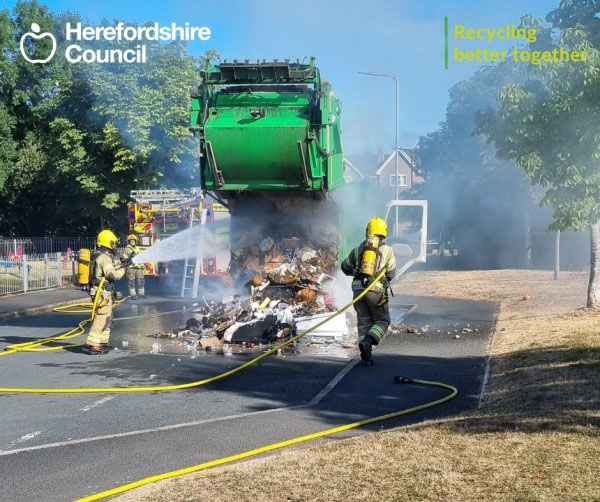Recycling better together
Thank you for recycling. While we've seen great improvements, 2,900 tonnes of material was still rejected by our recycling partner last year.
Envirosort tell us that's enough to fill over 250 rubbish lorries.
This is due to recycling being contaminated. Contaminated recycling happens when the wrong items are put into a recycling bin or clear recycling sack.
The five most common items that we find in people's recycling that shouldn't be there are:
If you contaminate your bin it will be tagged and not emptied. Find out more about when we tag a bin for contamination and what to do if your bin has been tagged.
You can avoid contaminating your recycling by identifying which items cause a problem, and knowing what to do with them instead.
Soft plastics
Soft plastics are lightweight flimsy plastics that you can easily scrunch up in your hand without any resistance, such as:
- Carrier and bread bags
- Plastic film lids on yoghurt pots, ready meals, and soft fruit punnets
- Crisp packets, chocolate and biscuit wrappers
- Pet food pouches
Our recycling sorting plant Envirosort say "they cause technical issues with the automated sorting equipment, causing mis-sorting and the rejection of otherwise good materials". That's why we ask you to leave these plastics out of your recycling.
Soft plastic can now be recycled at most supermarkets. Just give it a quick rinse (if needed), pop it to one side and take it with you on your next shopping trip.
Find your nearest soft plastic collection point using Recycle Now's Recycling Locator.
Food waste
Food should not be put in your clear recycling sacks or green recycling bin. If there is food in your recycling it will not be collected.
If any food ends up in your recycling it can make recycling, such as paper and card, dirty, which means that it can't be recycled. If you put any food in your recycling, it's not just your recycling that could be ruined, you could contaminate an entire lorry full of recycling.
Please remember:
- All recycling needs to be free of food
- Recycling should be clean. A quick rinse under the tap will do
- Make sure the recycling is dry
In Herefordshire over 40% of the rubbish in the average black bin is food waste and its packaging.
By far the best way to reduce food waste is to buy only what you need and to use all that you buy. Visit our food waste reduction page for some simple tips on reducing food waste.
If you need to dispose of food waste, please put it in your black bin. However, the best thing to do is not to produce it at all!
Batteries and small electrical items
Please do not put batteries of any size or small electrical items like kettles or toasters in your black or green bin. Leave them on top and we will keep them separate on the vehicle and recycle them.
Batteries can be very dangerous and even cause fires in bin lorries or at our recycling sorting site.

Take Charge raises awareness of the damage batteries can cause, if disposed of incorrectly.
Nappies
Do not put disposable nappies in your green bin; they cannot be recycled. Disposable nappies are made from plastic and must be put in your general rubbish.
Modern reusable nappies are easier to use than ever and are a great way of reducing your waste and saving you money.
Why not take a look at our reusable nappy page and see if you want to make the switch.
Textiles
Please do not put textiles in your recycling.
Here's how to recycle them:
- Clothing or textiles in a usable condition - have a look at our Reduce clothing waste page for suggestions on what to do with them
- Take to a Household Recycling Centre or find other recycling points like clothes banks by visiting Recycle Now
- Look out for national retailers which provide clothes or recycling drop-off points in store - for example Dunelm, Marks & Spencer
